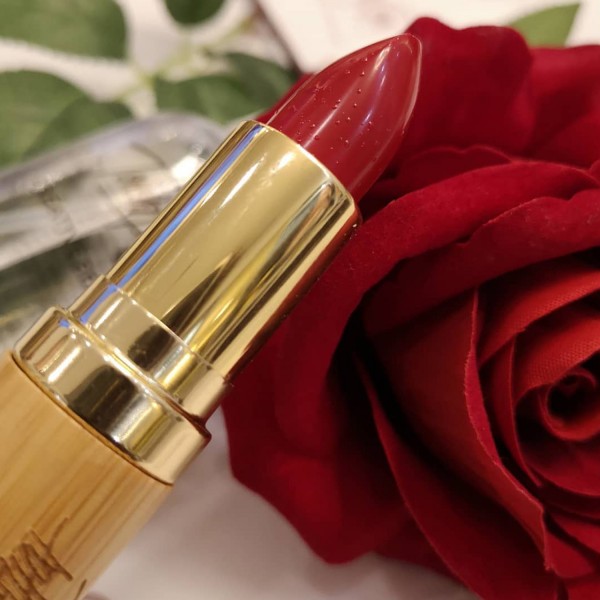Natural and organic cosmetics influence while changing the cosmetic panorama. Do "beauty rhymes with sustainability, respect for the environment and ethics in the cosmetics we buy? These are the questions we consumers ask ourselves. If you are thinking of going for natural or organic cosmetics to take care of your body, this article will help you better understand the difference between these two types of cosmetics.
*** Amalgam et ambiguous ***
As a consumer, you still have to make an effort to understand and know the difference between these two terms in order to better choose your product. It is quite clear that these names, far from being synonymous, refer to two ecological concepts. What you should know is that the difference lies mainly in the composition of the product.
WHAT IS A NATURAL COSMETIC?
Natural cosmetics are made up of ingredients from nature. It can be VEGETAL (plants), MINERAL (kaolin, clay) and ANIMAL (honey). A natural product contains no or very few chemical or synthetic elements.
Good to know
Any natural product that has undergone a modification or transformation in a laboratory is considered NATURAL and no longer ORGANIC.
However, there is no labeling around natural ingredients, which means that you will have very little information on the origin and provenance of raw materials, manufacturing processes, etc., because the competition is fierce.
Although no percentage of natural ingredients is mandatory in natural cosmetics, you should still know that in general, natural cosmetics are cosmetics that contain at least 95% natural ingredients. It is on this starting point that Dorothy Roffat Cosmetics bases itself for the manufacture of its products.
Many brands of natural cosmetics sometimes use very controversial, even dubious raw materials such as phenoxyethanol or paraben, which are highly toxic to the environment. However, they are determined to offer better products and improve packaging.
Regarding Dorothy Roffat Cosmetics, the brand offers you a whole range of natural products without harmful materials including Paraben. The packaging is exclusively in Bamboo and Wood. The products are mainly refillable to preserve nature and all plastic material is recyclable.
Benefits
- A natural cosmetic is generally suitable for all skin types. This means that you will have fewer allergy problems because during the manufacturing process, the product will be rid of all its allergenic substances so that it only keeps the good assets.
- Natural cosmetics are more effective. The product therefore taken out of the laboratory will also suit the greatest number.
- The desired results are fast and above all visible to the naked eye.
Disadvantages
- A natural cosmetic is also very often based in large part on the good faith of the brand. This means that the brand decides on the degree of transparency and trust it wants to establish with the producer, the distributor and the consumer.
WHAT IS AN ORGANIC COSMETIC?
An organic cosmetic is first of all a natural product. The first difference which makes it possible to differentiate the natural product from the organic product is its charter. Indeed, the organic product is required to have a certain percentage of ingredients from organic farming. This means a minimum of 95% natural ingredients and must be indicated to the consumer on the packaging. The remaining 5% can be synthetic products, often difficult to replace such as perfumes, preservatives, texturing agents, etc. The same content ambiguity is observed with the active ingredients and synthetic ingredients, respectively of 5% and 10% minimum in organic products.
Manufacturers have the obligation to strictly adhere to well-defined specifications such as the mode of production, authorized ingredients, absence of ingredients from petrochemicals, ban on testing on animals...etc.
There are also independent certification bodies which thus control the product chain from its conception to its marketing. They thus offer cosmetics companies international recognition which facilitates the marketing of products intended for the organic market. However, it is not always easy for financial reasons mainly to have an organic label.
Benefits
- An organic cosmetic is made from raw materials that are monitored and controlled, from their planting to their incorporation into the container.
- Organic certification makes it possible to prove a certain cleanliness of the ingredients.
- Organic requires biodegradable containers, printing of packaging in ecological ink and over-packaging prohibited.
Incovenients
- Organic cosmetics are not necessarily suitable for all skin types.
- It can trigger allergies in some people.
- Organic cosmetics act less quickly compared to natural products.
- Lack of visible effects because the effectiveness of the products remains to be proven., A large number of women complain about the lack of visible change with the naked eye.
Good to know
You should know that some organic products are not certified organic. Labeling is an expensive process for a company, not all small players can afford it. You can thus find natural cosmetics without an organic label, but which are just as organic as others labeled.
So, I hope this little summary will help you better understand the difference between Natural cosmetic and Organic cosmetic. Now it's up to you to make the choice based on the products that inspire the most confidence and above all, those with which you will feel good, which will suit your lifestyle better.



